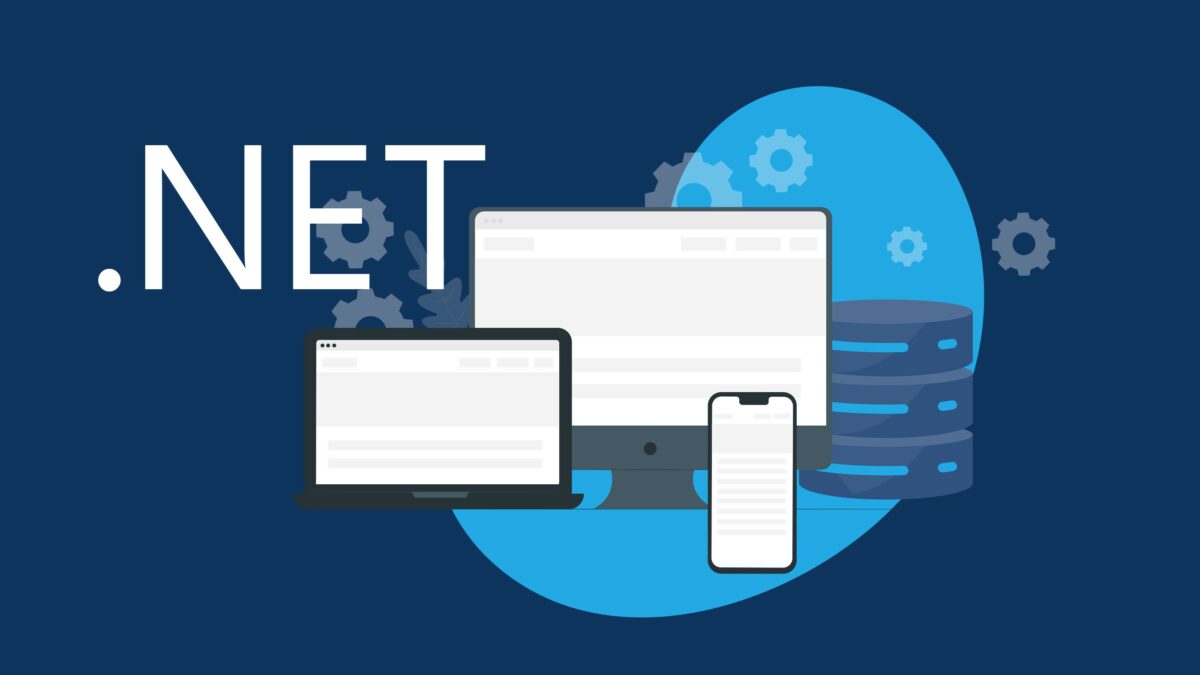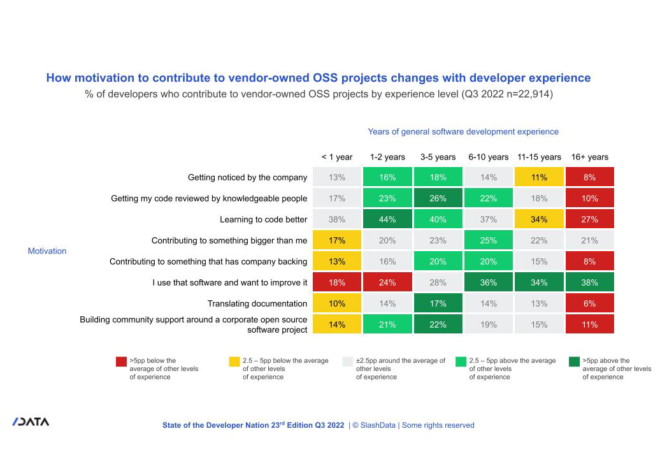As we all know, the .Net framework is a foundation for developers looking to build robust, scalable, and innovative software solutions. Whether you’re a dedicated developer and starting your development journey, this post is drafted to equip you with the knowledge, tools, and resources needed to harness the full potential of .NET.
Microsoft’s NET framework has undergone constant evolution to keep up with the ever-evolving demands of contemporary software development. The versatile .NET ecosystem, which consists of frameworks like ASP.NET and Xamarin together with languages like C#, VB.NET, and F#, gives developers all the tools they need to construct a variety of apps, from online and desktop to mobile and cloud-based.
In this article, we’ll explore the limitless possibilities of .Net to make it easy for businesses to hire developers and elevate their project with comprehensive ASP NET development services tailored to your specific needs.
What are the Benefits of Using .NET Development?
1. Enhanced Performance with Native AOT
Native Ahead-of-Time (AOT) Compilation in .NET Core can revolutionize application speed. This new feature has many benefits as it turns managed code into native machine code before it is run. Firstly, it ensures that apps run quickly and make a significant impact on starting times. Furthermore, AOT compilation effectively reduces resource utilization, memory usage, and overall efficiency. This enhancement is particularly useful when there are resource constraints and CPU, and memory use needs to be optimized. AOT-compiled applications are ideal for cloud-native architectures, microservices, serverless computing, and other situations requiring fast initiation because they also function well during cold starts.
2. Blazor
By providing a single, integrated solution for client-side and server-side development, Blazor transforms the web development industry. using the help of this cutting-edge framework, programmers may create interactive online apps using Razor and C# syntax, combining client-side and server-side .NET code execution in web browsers. Blazor’s unique feature is its ability to do away with the need for JavaScript frameworks.
With its unified programming approach for web development, it lets developers make the most of their current knowledge of Razor syntax and .NET. A consistent development experience is ensured by this unified approach, which permits the development of sophisticated, contemporary web experiences without sacrificing security or speed. Blazor enables developers to fully utilize .NET for web development, producing feature-rich and durable apps that satisfy the expectations of the ever-evolving digital landscape.
3. Architecture Design
The architecture design concepts of .NET are essential for developing software solutions that are both flexible and durable. Model-View-Controller MVC, MVVM, and Domain-Driven Design are a few of the architectural principles that .NET encourages and makes it easier to create modular, scalable web applications. By encouraging the division of responsibilities, this modular architecture helps developers to isolate the presentation, business logic, and data access layers. This is how .NET encourages the development of loosely linked components, which are simpler to test, manage, and update over time.
4. Integration Capabilities
Developers may interact and work together with a variety of technologies, both inside and beyond the Microsoft environment, by using the integration features of.NET. It offers seamless integration with a multitude of Microsoft technologies, including SQL Server, Azure services, Office 365, Dynamics 365, and others. Software development activities can reap the benefits of enhanced efficiency and productivity by optimizing pre-existing investments and infrastructure, owing to this compatibility. With the aid of these integrated development environments (IDEs), developers can create, test, and implement .NET applications on many platforms with ease.
5. Cloud-Native Development
With the help of .NET, developers may adopt cloud-native development techniques and use its features to create software that is scalable, reliable, and effective for use in contemporary cloud environments. Additionally, it facilitates cloud-native development by supporting containerization technologies like Docker and Kubernetes and enables the effective packaging, deployment, and management of .NET applications in containerized environments, guaranteeing consistent deployment across many platforms. By relieving developers of the burden of managing infrastructure, this serverless strategy improves agility and speeds up development cycles so that developers can concentrate on creating code.
6. Enhanced Productivity and Developer Experience
Code quality and developer productivity are enhanced by the whole suite of development tools that .NET offers, including Visual Studio, Visual Studio Code, and Azure DevOps. These tools include IntelliSense, code refactoring, and integrated debugging. Additionally, because .NET Core supports cross-platform development, developers can write code once and deploy it with ease across Linux, macOS, and Windows systems. This reduces development efforts and encourages cross-platform collaboration. With the help of a vibrant developer community, .NET provides an abundance of tutorials, documentation, forums, and open-source libraries that help developers become more proficient, work together, and efficiently overcome challenges—all of which improve the development process.
7. Faster Time-To-Market
.NET accelerates time-to-market in several ways. First, it enables quick application creation by streamlining typical activities like authentication, authorization, data access, and UI design with its extensive libraries, frameworks, and development tools. Teams may produce new features and incremental updates more quickly by utilizing agile development approaches like Scrum and Kanban, which aids companies in responding to the ever-evolving demands of their clients and market trends.
8. Continuous Innovation
Because of Microsoft’s consistent commitment to .NET, developers can create software that is innovative, scalable, and creative. This is seen by the regular releases of new features, upgrades, and technological advancements. The vibrant open-source community that encircles .NET creates tools, frameworks, and libraries that promote creativity and expand the platform’s capabilities, thereby advancing it. Together, these elements maintain .NET at the forefront of technological innovation and empower developers to create next-generation solutions to meet the requirements of businesses.
9. Comprehensive Support
All levels of developers and enterprises can benefit from the extensive support that .NET offers. Microsoft provides businesses with extra assurance, support, and expertise for mission-critical applications through enterprise-level .NET support plans and services. Enterprise-level support guarantees scalability, stability, and dependability, boosting organizations’ trust in their .NET-based solutions.
The Role and Responsibilities of .NET Developers
There are a wide variety of .NET Developer roles accessible, and each role has its own set of responsibilities. Dot net developers need to continuously innovate and reinvent themselves to stay ahead of the competitors in their sector. Over the past ten years, there has been a noticeable increase in demand for Dot Net Developers. The primary responsibilities that come with working as a Dot Not developer are listed below:
- Creating and testing unique text-based web and mobile apps.
- To gather the client’s software requirements and create the application to those needs.
- To create and develop maintenance-related activities and procedures.
- Addressing and rectifying various issues related to the system, such as bugs, glitches, malfunctions, and inefficiencies.
- Risk estimation analyzes potential uncertainty, quantifying their impact to inform decision-making and enhance resilience through mitigation strategies.
- Preparing the procedure and policy documents to run applications.
- Creating and monitoring various systems for an application.
- Divide up the project work according to the budget and needs of the client.
Conclusion
You must now be aware of the advantages of .NET development, from Blazor’s adaptability for web development to native AOT compilation’s improved performance. We have explored the architectural ideas underlying.NET development, enabling programmers to design software that is scalable, extensible, and maintainable. Lastly, we have underlined the significance of all-encompassing support, making certain that companies and developers have the tools and resources required to be successful in their .NET development activities. As we get to the end of this post, we urge developers to keep learning and utilizing the capabilities of.NET to build innovative software solutions. These solutions promote efficiency, creativity, and success as businesses are continuously seeking help from a leading dot net development agency in Texas for unparalleled expertise and tailored solutions for their projects.








